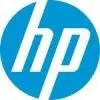Overview
What is NetApp FAS Storage Arrays?
NetApp's FAS series systems offers a storage array system for enterprises.
Great Performance and Reliability While Being Stable and Convenient To Manage
NetApp FAS -High Performance Storage Solution
NetApp [FAS} Series is the Absolute Platform for File as a Service!
Did not live up to expectations
NetApp is losing market FAS
NetApp FAS with CDOT: Jack of All Trades, Master of Unstructured CIFS/NFS Data
Strong and Reliable storage
NetApp (F)ast (A)nd (S)table
NetApp Reliability and Support is Not Quite There
NetApp FAS series acting as a CIFS business server
NetApp -- an excellent platform for virtual environments
NetApp FAS Does it All Review
NetApp FAS... a universal storage problem solver!
Product Details
- About
- Tech Details
- FAQs
What is NetApp FAS Storage Arrays?
NetApp FAS Storage Arrays Video
NetApp FAS Storage Arrays Technical Details
| Operating Systems | Unspecified |
|---|---|
| Mobile Application | No |
Frequently Asked Questions
Comparisons
Compare with
Reviews and Ratings
(52)Community Insights
- Business Problems Solved
The NetApp FAS8300 has been widely embraced for its ability to support large-scale storage requirements across various systems and data centers. Users have praised its snappy performance and impressive power, making it a valuable asset for organizations with demanding workloads. With innovative features like flash cache and deduplication, the FAS8300 stands out as top-tier storage that delivers exceptional speed and efficiency. Additionally, the FAS8300 has been leveraged as a reliable solution for NFS-connected storage in VMware environments with multiple hosts and hundreds of guest operating systems.
NetApp's FAS series devices, including the FAS2200 and FAS3210 models, have found their place in diverse use cases. These devices have successfully housed entire virtual server networks, offering ample speed and bandwidth to run multiple servers simultaneously. They have also served as CIFS servers, replacing traditional Windows servers to enhance security protocols. Furthermore, NetApp FAS controllers have served as primary storage for critical system data at operational sites while also providing primary storage for VMware-based storage at multiple locations.
One notable use case in Brazil showcases the exceptional reliability and availability of NetApp FAS. Thousands of users have accessed over 700TB of user data without any incidents over the past seven years. This highlights the robustness of NetApp's NAS workloads in delivering high availability and resiliency. The flexibility of the FAS series is further demonstrated by its ability to function as both a SAN and CIFS file system, effectively replacing outdated and undersized storage arrays.
Overall, the NetApp FAS series has proven itself as a versatile solution for various IT infrastructure challenges. It facilitates seamless IT growth, simplifies backup and restore processes, and enables users to store databases and replicate data across different environments. Its role as a NAS device extends beyond file services to include support for FC and iSCSI protocols. With strong operating systems and reliable customer support, the NetApp FAS series remains a popular choice for organizations seeking robust and scalable storage solutions.
Attribute Ratings
Reviews
(1-6 of 6)NetApp FAS -High Performance Storage Solution
- Backup and restore
- I/O Performance
- Support
- I would like to see the GUI to be improved bit more
- Cost is something I would like to get reduced even though it's not possible :-)
- Integration with active directory
Did not live up to expectations
- Clustered storage
- Multiple connectivity options (Fibre Channel, iSCSI, CIFS/SMB, etc.)
- Options for mapping volumes to different connectivity types
- Deduplication job runs at certain times and creates a large CPU overhead for the system
- Management of a volumes, disk groups, LUNs, etc. is a burden to manage and is not efficient with storage capacity
- Upgrades are complicated and not "non-disruptive"
- Unstructured data
- Lifecycling of hardware (C-DOT)
- Metro level high-availability (MetroCluster)
- MyASUP integration
- 7-mode's licensing model was more favorable.
- Some CLI commands are too cumbersome without automation, driving users to the GUI.
- Physical cabling can be daunting for new users or DC facilities.
Strong and Reliable storage
One of the main reasons for it to be selected as the standard for NAS workloads is the resiliency and high availability it provides. In Brazil, we have ~5000 users accessing more than 700TB of user data (CIFS shares) on a daily basis. We didn't have a single availability incident in the last 7 years!
- NAS Workloads (CIFS, NFS)
- Snapshot retention/management
- Disaster Recovery protection (SnapMirror and SnapVault)
- Storage efficiency (compress, deduplication)
- The workload balance between the nodes is managed manually
NetApp (F)ast (A)nd (S)table
- Backups are a piece of cake with Snapshot technology.
- Disaster recovery plans are made much easier with SnapMirroring to remote locations.
- The support is incredible. Auto Support makes it incredibly easy. The Auto Support website also gives you a great view of your NetApp deployment.
- Redundant paths make updating and maintenance much easier with no downtime.
- System Manager is missing some commands and therefore you have to rely on CLI. This is not a problem for most admins but it has room for improvement.
- Cabling diagrams for redundant path can be confusing.
- When we had one of the older models in place our drives would spontaneously pop out of place due to old plastic clips. We have not had the same issue again with a newer NetApp model.
NetApp FAS Does it All Review
- Replication
- Recovery
- Storage Provisioning
- Documentation
- User Interface




